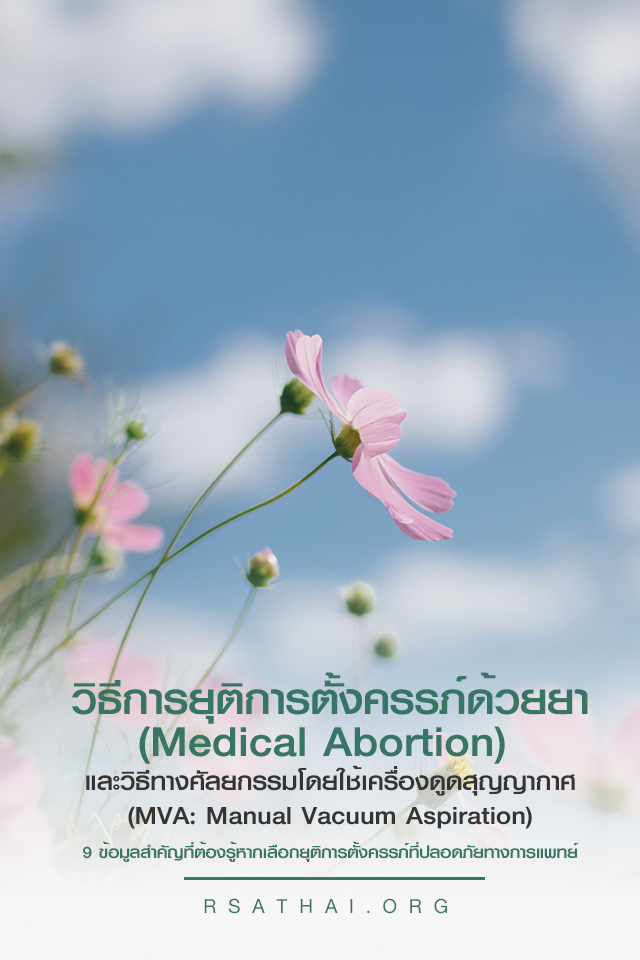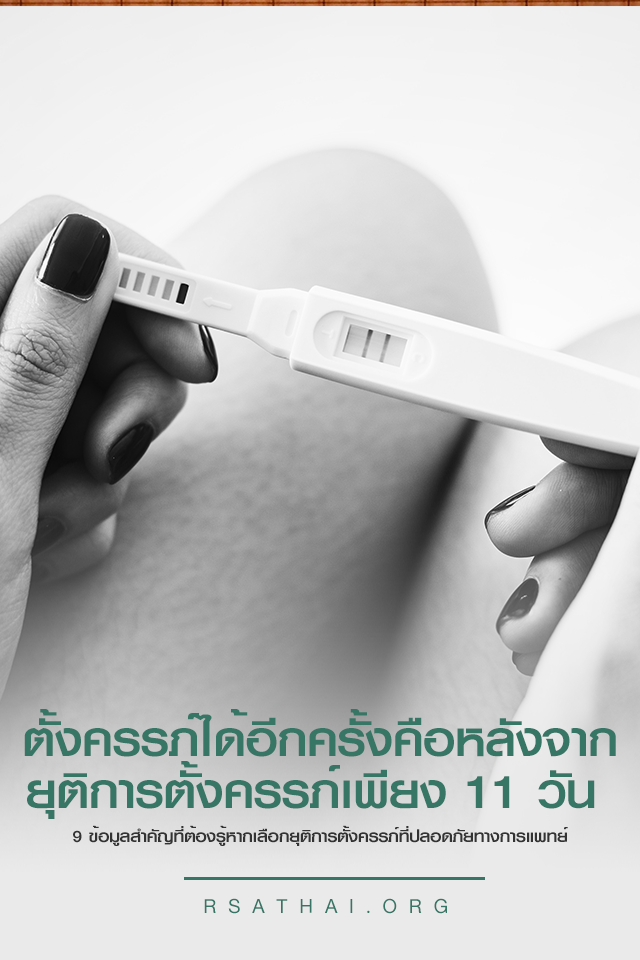After careful consideration that one is not yet ready to continue the pregnancy, for the utmost safety of women, it is advisable to terminate the pregnancy within 12 weeks. This can be done at a clinic. If it exceeds that, services must be sought at a hospital, and termination can be done up to 24 weeks of pregnancy. Current medical technology can help make pregnancy termination safe. Importantly, pregnancy termination in Thailand, whether using medication or vacuum aspiration, must be provided by a doctor.
9 Important Facts to Know if Choosing Safe Pregnancy Termination
Fact 1: Pregnancy termination is safer, with fewer side effects and less life risk than childbirth. However, the risk increases if unsafe abortion is performed, such as buying drugs online or receiving services from non-medical providers using unsafe methods.

Fact 2: The earlier the pregnancy is terminated, the safer it is because the embryo is smaller. This is why it’s important to monitor your menstrual cycle if you have unprotected sex or use ineffective methods like withdrawal. Pregnancy can be detected 14 days after. If you find out you’re pregnant or miss your period, seek consultation or call 1663 for a quick solution. The sooner, the safer.

Fact 3: There are two methods of pregnancy termination: Medical Abortion and Manual Vacuum Aspiration (MVA). The possible options for safe pregnancy termination depend on suitability and must be under medical supervision, with the decision and consent of the woman who is not ready for pregnancy.

Fact 4: The methods, procedures, and service duration for pregnancy termination vary according to the gestational age.
The first method is medical abortion. The most effective method is using two types of medication, applicable up to 24 weeks of pregnancy. The dosage varies with each gestational age, and the doctor will always check the gestational age with an ultrasound before administering medication.
In cases of pregnancy not exceeding 12 weeks, services are provided at clinics or hospitals. On the first day, the doctor will give the first pill. The next day, the second set is used either by insertion or sublingual administration, or there is an option to take the medication at home under the guidance of a doctor or nurse.
For pregnancies over 12 – 24 weeks, the doctor will give the first pill. The next day, medication is inserted or taken sublingually at intervals until the pregnancy termination is complete, under close medical supervision, requiring a 1-2 night stay at the hospital.
The second method is pregnancy termination using Manual Vacuum Aspiration (MVA), applicable for pregnancies not exceeding 12 weeks, provided at clinics or hospitals without the need for an overnight stay.

Fact 5: Curettage is an outdated and high-risk method. Currently, international organizations, including the World Health Organization, recommend discontinuing this method in favor of medication or vacuum aspiration, which are more effective than curettage. In Thailand, the Ministry of Public Health also does not recommend curettage. Medical providers should keep up with technological advancements for the safety of service recipients. Service recipients should ask for and request modern and safe services in line with the recommendations of the Ministry of Public Health and the World Health Organization.

Fact 6: After pregnancy termination, the chance of becoming pregnant again is possible just 11 days after termination, even if menstruation has not yet resumed, because ovulation can return within 2 weeks after abortion. Therefore, doctors recommend immediate contraception after pregnancy termination to prevent unintended pregnancies.

Fact 7: After pregnancy termination, immediate contraception should be used with effective methods such as contraceptive implants or IUDs. These services can be obtained at pregnancy termination service centers or nearby hospitals. For details on service centers providing semi-permanent contraception, implants, and IUDs, see here: https://rsathai.org/healthservice

Fact 8: A common question is whether and when one can have sex after pregnancy termination. The answer is yes, if there is no vaginal bleeding, you can resume sexual activity. However, it should be after contraception has been used because after pregnancy termination, it is very easy to become pregnant again if not protected.

Fact 9: Women should undergo cervical cancer screening annually and HIV testing twice a year. These services are available for free under your rights. For more details, call the NHSO hotline at 1330. Prevent unintended pregnancies and take care of reproductive health to prepare for a “ready” pregnancy in the future.

Source: Standard of Practice for Comprehensive Safe Abortion Care
Read and download more here: https://rsathai.org/en/contents/25807
